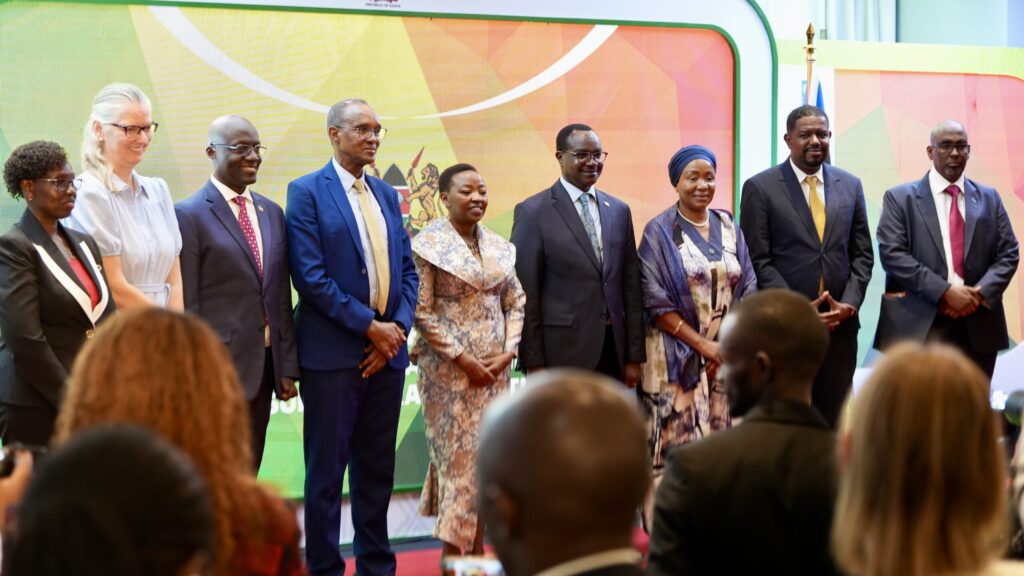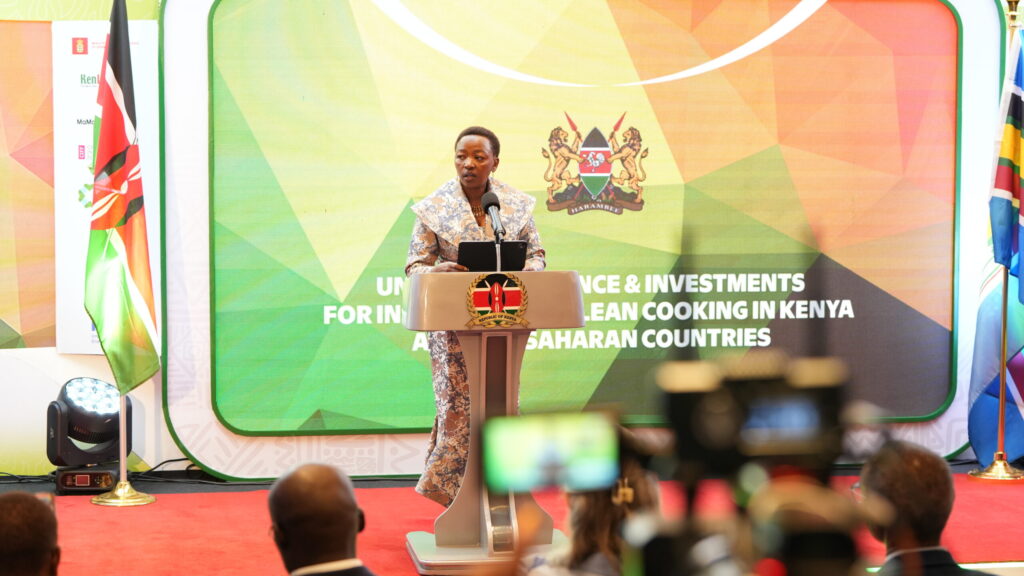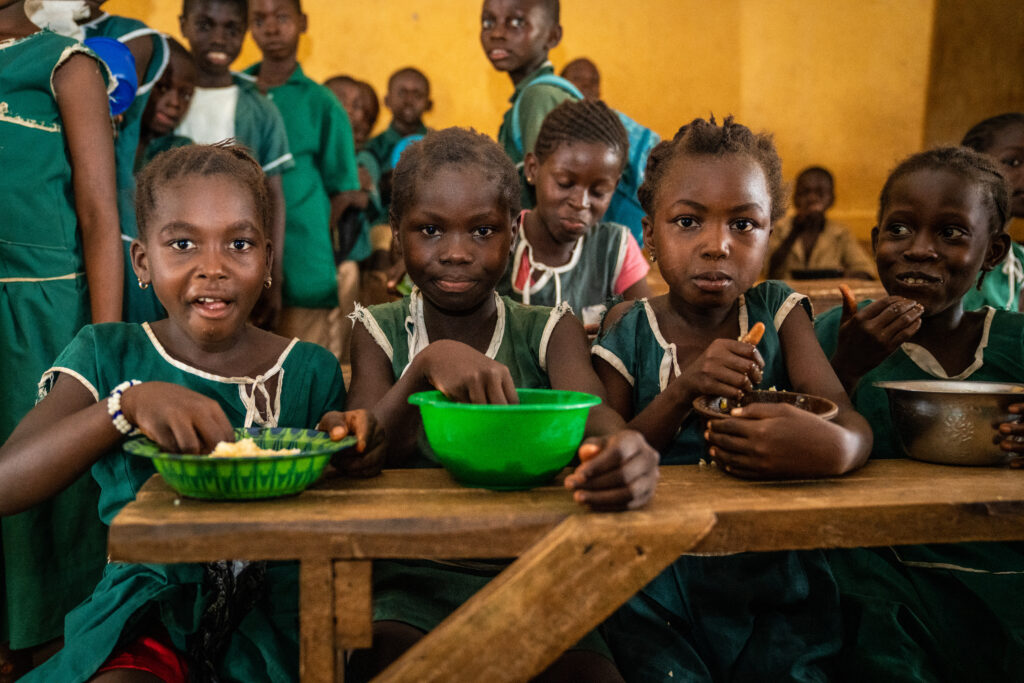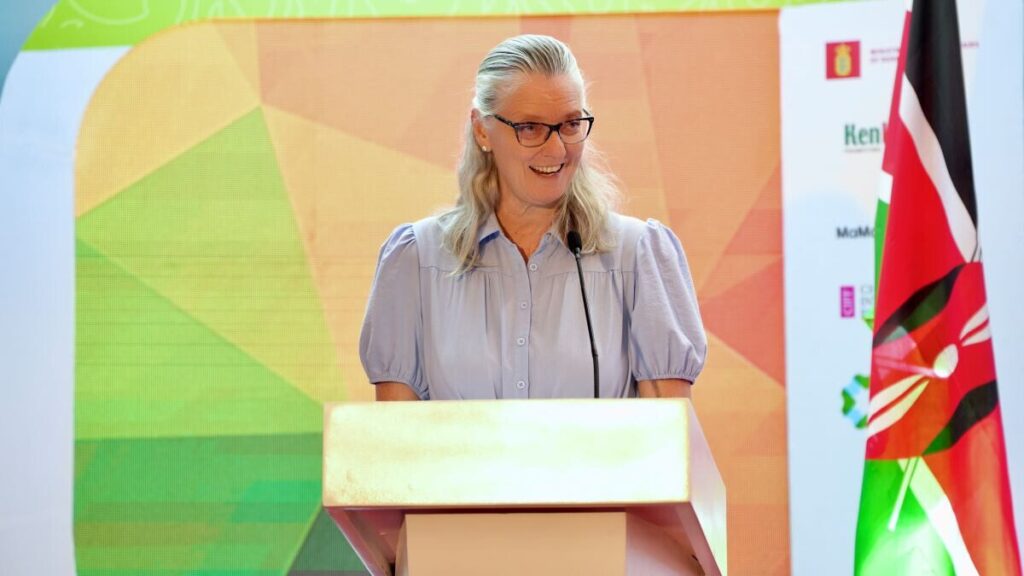Momentum Grows for Clean Cooking in Kenya’s Institutions
The cross-cutting nature of clean cooking was evident at the recent High-Level Summit on Unlocking Finance and Investments for Institutional Clean Cooking in Kenya, held in Nairobi on October 28 and 29, 2025. Some 250 participants joined the event, representing a wide range of government agencies–focused on education, health, environment, finance, and more–as well as investors, donors, multilateral development banks, and other economic development partners.

Hosted by the Office of Kenya’s Special Envoy for Climate Change, with support from its Clean Cooking Delivery Unit, the summit aimed to accelerate Kenya’s clean cooking transition by investing in large-scale institutions, namely schools, health centers, and correctional facilities.
Day 1 of the conference showcased Kenya’s growing leadership on this issue, with a keynote address by H.E. Rachel Ruto, First Lady of Kenya, and presentations by Clean Cooking Alliance CEO Dymphna van der Lans and representatives of the National Council for Nomadic Education in Kenya, the social enterprise Mwangaza Light, the Government of Makueni County, and the Kenya Prison Service, among others.

“When we transform school kitchens, we protect cooks and children, save trees, and teach a generation what a healthy, climate friendly, and dignified future looks like.”
– H.E. Mrs. Rachel Ruto, First Lady of Kenya
Several entrepreneurs, including IGNIS Innovation, Feion Green Ventures, Ecobora, BURN, and Faith Energy Saving Engineering Works, exhibited stoves and fuels technologies specifically designed to cook–safely and efficiently–for large numbers of people.
 © World Food Programme
© World Food Programme
“Given our commitment under the Global School Meals Coalition of reaching 10 million learners by 2030, we have to adopt strategies that will ensure school meals do not pose risks to our environment. Transitioning to modern clean cooking technology will deliver various benefits. There will be a reduction in fuel costs by 90.3%.”
– Julius Migos Ogamba, Cabinet Secretary, Ministry of Education of Kenya

Transitioning all schools to clean cooking could generate 14 billion Kenya shillings in health, economic, and environmental benefits, while cutting carbon emissions by 1 million tons each year. And that’s just schools! The challenge—and the opportunities—are similar among Kenya’s other institutions.”
– Dymphna van der Lans, CEO, Clean Cooking Alliance

Day 2 of the conference focused on developing concrete policy, data, and finance solutions to address the gap in institutions’ access to clean cooking.
The summit concluded with a commitment to implement the Nairobi Action Plan, a roadmap for financing a complete transition to institutional clean cooking by 2028.
Across sub-Saharan Africa, access to clean cooking in institutions poses both a challenge and an opportunity. Kenya alone has more than46,000 primary and secondary schools, and over 90% of them rely on firewood or charcoal for daily cooking needs. Collectively, Kenya’s schools consume over 1 million tons of firewood every year, costing Kenya’s Ministry of Education some 15 billion Kenya shillingsevery year.